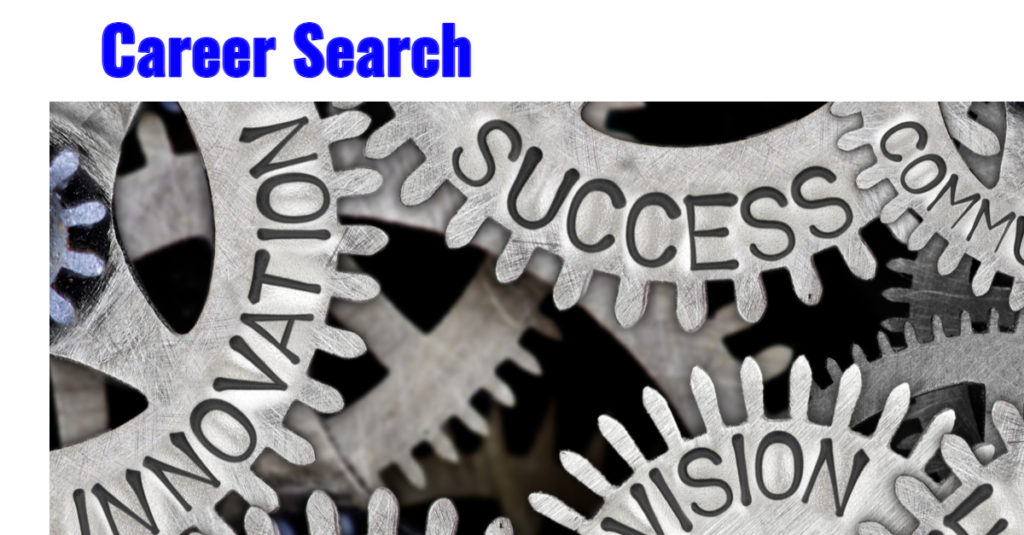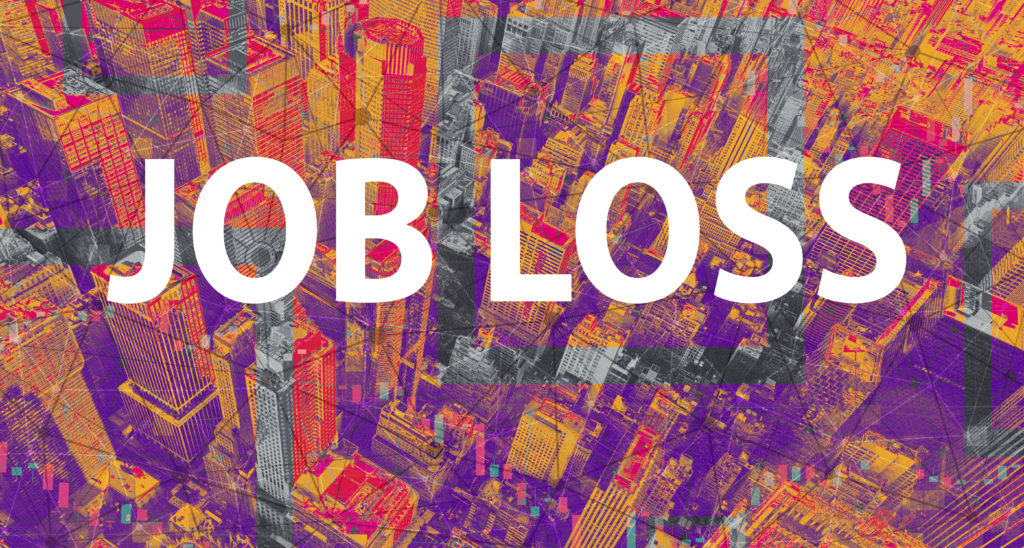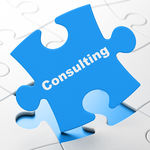
QUIET CRACKING
Lori Morefield-Berg
Career Development & Interviewing Coach | Job Search Mentor
August 22, 2025
A recent report from Resume Templates found 59% of surveyed workers said they are experiencing “quiet cracking”. The report surveyed 1,113 full-time workers.
The term is different from the popularized “quiet quitting,” in which workers set boundaries or scale back during work. With quiet cracking, workers endure burnout and strain to keep up appearances.
62% of quiet crackers say they will likely change jobs in the next six months.
A mixture of workplace and personal issues is driving this phenomenon, according to the report. The top reasons that surveyed workers pointed to were an excessive workload (43%) and stress from their personal lives (40%).
Why do younger generations and men report higher rates of quiet cracking? What are the predominant reasons other than workload? Is there any way out other than changing jobs?
There have been stressful periods of employment in the past, why is this such a problem now? Love to hear from you!
Info for this article taken from Marq Burnett – Associate Editor, The Playbook, The Business Journals
Lori Morefield-Berg provides focused Career Reboot/Pivot expertise for professional candidates. Job Search Packages include insight into career/job/industry and market choices and a detailed Advanced Search Plan that targets a new position. This involves personalized remote/one-on-one sessions and custom assignments. Personal Re-Branding Packages include an updated LinkedIn summary, a Resume re-focus, and Interviewing role-play.
Info for this post taken from Marq Burnett – Associate Editor, The Playbook, The Business Journals
Boomerang Employees Are on the Rise

Lori Morefield-Berg
Career Development & Interviewing Coach | Job Search Mentor
June 26, 2025
Boomerang employees are on the rise. In March, 35% of new hires were rehires, according to ADP. Why are rehires beneficial and on trend? They have new perspectives paired with insider knowledge, a strong loyalty and understanding of employer brand, a lower hiring and onboarding risk, plus a faster ramp time.
So why did they leave in the first place? There are all kinds of reasons that people leave jobs, not all of them are negative and not all work environments are toxic. Personal/family responsibilities are the most common reason for people to switch jobs. Since the Pandemic, location has been a major factor and why remote work is so sought after.
People don’t leave successful relationships unless something changes. Management changes, ownership changes, the economy changes, the market changes, or the employee changes. Sometimes salary increases come into play if another offer presents a better opportunity, but for the most part, if people value being able to affect things, can negotiate workplace conditions with their boss, and appreciate the ability to do so, they are not anxious to leave. Having matching values and priorities, plus being appreciated is very comfortable and satisfying.
When companies are going through a merger or buyout , that satisfying environment can turn toxic quickly. New management/ownership is a major disruptor. Buyouts cause chaos and if the goal is to sell off a company’s assets there is no concern for performance or the loyalty of legacy employees at all. For the most part, top performing teams DO like to stay together. They have history, and they know what to expect and who they can trust.
The current job landscape is moving and ch
The Top Red Flags that can cause Turnover & Concern

Lori Morefield-Berg
Career Management & Business Consultant | Job Search Mentor
December 26, 2024
Here are takeaways from Monster.com’s Workplace Red Flags survey, which explored pain points in the workplace.
I have heard many of these “red flag” complaints when talking with clients who are interviewing for new postitions or interested in making a job change. What do I hear most often? My experience mirrors the survey. 73% of workers say that micromanagement is the biggest workplace red flag followed by 59% who say that required meetings could have been just an email (31% of which say status meetings are out of control), and finally 51% say lack of flexible work hours.
Jessica Kriegel, chief scientist of workplace culture at Culture Partners concludes that organizations are focused on tasks too often , even when those tasks don’t correlate to the goals of the organization. They need to give a closer look into the “big picture” of what the organization wants to do, not try and make up something to do.
Finally, red flags show themselves during the interviewing process. 65% of survey respondents think that jobs that require more than three rounds of interviews are very suspect, 53% say that a mandatory “assignment” would prevent them from applying, and requiring a manual re-entry of information that has already been provided- is a turn-off.
I believe that since the talent market has tightened, more companies need to be responsive to these shifting preferences. Employees continue to have leverage, so recruiting and keeping these employees should be at the top of concerns for executives in the coming year.
So if you are thinking of a change, work where there are less unproductive meetings, and where you can affect things that match the mission statement and organizational goals, and avoid constant supervision and status updates. Basically, find somewhere that you can be trusted to be the valuable talent that you are. Need help figuring out where that is? I can help.
Lori provides focused Career Reboot/Transition expertise for professional candidates. Job Search Packages include insight into career/job/industry and market choices and a detailed Advanced Search Plan that targets a new position. Personal Re-Branding Packages include personalized on-on-one sessions, custom assignments, and an updated LinkedIn summary, Resume re-focus, and Interviewing role-play.
Avoiding Pitfalls in Interviewing

Lori Morefield-Berg
May 28, 2024
Avoid directly answering questions on these topics while interviewing. (These topics are illegal as part of EEOC laws in most states.)
Family Status ~Pregnancy ~Age ~Prior Salaries
There is a patchwork of varying and ever-changing state laws about what managers can ask a candidate about all of these but especially salary history. A question that may be legal in one state is illegal in another. 30 states have laws prohibiting salary questions. Don’t answer these even if you think the answer will work in your favor. Never answer questions openly, not thinking about the consequences or the bias someone might have. This is breaking the overreaching rule #1 in interviewing- offering TOO Much Information.
Most often companies have preset salary levels based on location, industry and experience so this is not even necessary to discuss. Do you want to know how to avoid answering salary questions and still be in the running? Be happy to review this and how to negotiate an offer with you.
Your previous salary doesn’t have any bearing on your future salary, just as what you paid for your last car has any bearing on what you are willing to pay this time. There are many variables that affect this including location, industry, function, experience, and size of the company.
Managers most often hire people that think or act like they do — which may end up ensuring they don’t end up hiring those who might be the best for the job, but it does improve the odds that they hire someone who will complement the team culture and have the same values and priorities. Do you think that whether you are hard-working, or smart is more relevant than someone liking you? Yes, that’s true, but do you want to work with someone daily that doesn’t like you? Are you looking for THE job or THE one, or just another job with a salary? How do you find the right “fit” for you in culture? Be happy to review this with you.
Finally, if you are prepared to find out why the position is open, why it has been budgeted, what the goals are in hiring for this position, then you are more likely to relate your experience correctly and be able to point out what you have previously done that relates directly to that need. Your “stories” are what will set you apart, not your resume. Most can match their background to the job description, but what sets you apart? Be memorable. Avoid being “ghosted”. Be the “date” that they want to go out with again. 😊
Lori’s experience with strategic alliances and people development allows her to quickly assess client needs, create strategic plans, and customize personal branding to target and achieve their goals. Her client’s say, “Wow, you really GET me!” OR “You make me sound really good!”
$$ Factors into Career Choices

Lori Morefield-Berg
May 21, 2024
Factors to Consider in Choosing or Changing a Career
Working Remotely may cost you going forward. Inflation is playing havoc with salaries, and only certain degrees matter. Top dollar $ in 2024, is only going to specialized Physicians and Engineers.
Only 4% of jobs in 2024 that pay more than $250,000 a year are available as fully remote and just 1% are classified as hybrid, according to research from high-paying jobs website Ladders. (10% of these jobs were remote less than one year ago.) $200,000 is the new $100,000 when it comes to careers,” said John Mullinix, director of growth marketing at Ladders, who led the research. Most of the jobs paying $250,000 a year or more require at least five to 10 years of experience, if not more.
According to the Bureau of Labor Statistics’ inflation calculator, to match the buying power of a $100,000 job one generation ago in 1994, you’d need to earn $212,000 today. Overall, Healthcare as an Industry has the most opportunity to accomplish earning this higher salary.
For college students looking to maximize their income, engineering might be a good bet, according to a college salary report from Payscale Inc. That report analyzed alumni salary data from 3.47 million people across 2,475 degree programs to find which degree fields earned the highest median salary for workers with 10 years of experience. However, Software Developers, Web Developers, Programmers, and Testers are in abundance right now. Consider becoming a Computer and Information Analyst or a Chemical Engineer instead?
Are you ready to make a change? Whether you are thinking of getting a new job, beginning a new career, or advancing in your career- the process is the same. Seek advice, put one foot in front of the other, increase your momentum, and get started with a dedicated plan.
Ask about Personal Re-Branding Planning Packages
Essential Skills for High Pay

Lori Morefield-Berg
April 17, 2024
Career Management & Business Consultant | Job Search Mentor
Since the pandemic these 10 skills separate those with a good salary from those with a great salary.
Independent researchers identified the 10 soft skills with the greatest demand, and evaluated more than 17 million job listings on Indeed, focusing only on roles in the top 25% wage bracket, to see what employers were looking for in job candidates.
On average, soft skills are not as well-rewarded as hard technical skills in terms of starting salary. But high-paying firms do expect applicants to demonstrate strengths in this area, recognizing that a team with strong people skills is a happier team and that happier environments achieve “more profit, higher productivity, more innovation and creativity, greater customer loyalty.
They were the following:
1. Strategic thinking
2. Negotiation
3. Persuasion
4. Presentation Skills
5. Critical thinking
6. Mentoring
7. Emotional intelligence
8. Innovation
9. Financial management,
10. Resilience
These “soft” skills are reaping hard cold cash in terms of reward. There is a common thread. Communication of these skills is paramount to success. No matter your expertise, if you can not persuade your audience on your position, or demonstrate value, then it is not going to change your status. Need help effectively relaying these in interviewing, or evaluating which of these skills that YOU can maximize in your own career?
Lori Morefield-Berg provides focused Career Reboot/Transition expertise for professional candidates. Job Search Packages include insight into career/job/industry and market choices and a detailed Advanced Search Plan that targets a new position. Personal Re-Branding Packages include personalized remote/in-person sessions, custom assignments, and an updated LinkedIn summary, Resume re-focus, and Interviewing role-play.

Lori Morefield-Berg September 28, 2023
How to Avoid a Bad Interview
There are many guides written to ensure your success at interviewing, including those compiled by hiring managers. Surveys reveal that the current most important soft skills are Adaptability, Innovativeness, Culture Fit, and Collaboration. So answering behavioral questions in a way that best reveal these skills is definitely a must. But it is not all.
These guides explain how to relate your job experience to what is required in the job description. It is so important that you discover what the company’s priorities are in hiring before you choose the experience that you relay. Your answers have to have substance. That is why my clients are required to do exercises that help them detail their greatest successes and quantitative accomplishments for easy recall. Drawing a line from these examples to the company’s needs helps to give these stories meaning and makes you more memorable!
So, while your primary goal is to prove you have a particular skill or experience, you have to speak with confidence, candor, and genuineness. (So much easier after rehearsing with an expert.) Whole-heartedly pursue the position until you get it. (Negotiation comes after the employer already wants you.) You want to be remembered, so be interesting enough that your “style” and “stories” set you apart and are compelling.
Need help preparing stories and reviewing the Top 15 Interviewing Questions? Need to know what the 3 Most Important Guidelines are? You want to avoid a bad interview? Get professional role-play assistance.
😉 (My clients can attest to this!)
Lori Morefield-Berg Provides focused Career Reboot/Transition expertise for professional candidates. Job Search Packages include insight into career/job/industry, market choices, and a detailed Advanced Search Plan that targets a new position. Personal Re-Branding Packages include personalized one-on-one sessions, custom assignments, and an updated LinkedIn Profile, a Resume re-focus, and in-depth Interviewing role-play assistance.

Pivot to a Higher Salary
Lori Morefield-Berg July 24, 2023
The “Great Resignation” may be over, but it hasn’t become the “Great Stay”. The Covid-19 pandemic fueled a historic level of workers quitting their jobs, but now workers are taking the time to look for better offers before they leave.
Finding a new job is still a quick route to get a pay raise — with wage increases nearly double that of workers who stay in their current jobs. “ADP Pay Insights” data shows that workers who switched jobs in June 2023 saw an 11.2% boost in median pay over the same time last year, compared to a 6.4% increase for those who stayed in their jobs.
Those employees who can find new jobs and command higher salaries are the best workers, and the higher salaries are due to their collectively finding out what the market will pay. Historically, awards are always greater when you switch. The true value of anything is decided by what someone will pay at the time of sale.
Add a strong labor market to prolonged labor shortages that have become the norm, and you get a huge shift in the market. The pandemic catapulted decreased tenure time and it is now hovering at 4 years with the same company. That trend downward is likely to continue.
Most of the workforce in America has experienced both a Recession and a Pandemic in a short period of time. The lessons learned will continue to mold the job market going forward. The caveat to all of this? More employees will be open to switching jobs more often.
Be happy to discuss all of this with you further. I want my clients to understand the current job landscape before making a change.

CAREER PIVOT, REBOOT, or CHANGE?
- Published on October 5, 2021
- Career & Business Consultant | Job Search Mentor53 articles
It takes the same amount of time to get the wrong job as it does the right one. There is no advantage to putting a square peg into a round hole or throwing everything out there to see what sticks. The job search process that you used even two years ago is no longer efficient or productive. Searching jobs that are open online and trying to fit your background into them is a waste of time unless they are a perfect match for you. There is no need for more than one resume if you have a clear target. You should have a defined, thoroughly researched, educated focus with branding to match. Decision makers should be able to determine who you are, what you do, how your experience will benefit them, and be motivated to learn more.
So how do you know which aspects of your experience are the most marketable and in demand in making this change? This takes careful targeted research dependent on actual demographics from companies and published employee data. LinkedIn” Insights” on company pages contain much of this information, but evaluating the skill sets of employees that already work in your desired position is the best way to determine whether you will be a good fit. Just as you might hire an analyst or BI professional to help you with marketing data, a career specialist should be able to give you the necessary insights to make an educated decision.
Now that you know what you want to do, and what title best delivers that message, you will need a professional to provide you the most updated branding to ensure that application trackers and search algorithms will work in your favor. When this is done well it is more effective than going through the application process from start to finish. Your experience will be seen by every active decision maker as if you just walked in and put your resume on their desk. Well-thought out and concise messaging accelerates the process, but poor messaging will derail it. This is a sales exercise, and your conversations must be beneficial to the recipient to be effective.
Finally, deciding which industry would provide the best opportunity with your experience is extremely important. Some industries such as hospitality were hit hard during the pandemic, others like supply chain, transportation, and cloud technology are growing exponentially. After you zero in where you would have a market advantage, research the companies that could both potentially hire you and meet your needs. This is your focused job search target whether you are undergoing a career pivot, reboot, or job change. Questions?

- Published on March 19, 2021
- Career Consultant | Job Search Specialist | Business Mentor54 articles
Top Career Trend for 2021
The dichotomy between education and experience has never been greater than in today’s job market. Degrees are no longer crucial to starting careers. Hard skills like science, math, and languages are no longer important to developing a skill that is vital in today’s environment. For example, one programming language can be outdated, but problem-solving and work ethic are still important.
What does this mean? Having the creativity to win sophisticated consumers and succeed over competitors is the most important skill. It is also a soft skill that is in limited supply. Being able to take innovative concepts and make them reality, is the one skill that can be applied to any job or function. If you can see things in new ways, find unseen patterns, or make connections between unrelated things, then those unique solutions to problems are capabilities that machines, and AI cannot easily duplicate.
As automation continues to transform business, the demand for soft skills will rise significantly by 2030. Are you prepared to change your career and benefit by this trend?
The career transition process is also dependent on creativity and innovation in marketing and focus. That is why a new resume or profile will not be enough to get you the job you want. A job search professional should excel at highlighting your soft skills to attract the right company, at the right level, in your desired industry. Effective branding is dynamic and constantly changing, but it only needs to reach the right audience once, to catapult your career to the next level!
Lori’s experience makes her uniquely qualified to identify and consult with talented individuals in sales management, marketing, finance, IT, engineering, operations, HR, and business development. Lori has a B.A. in Developmental Psychology, which underlines her training expertise and consultative approach. She was a business recruiter in addition to providing training to recruiters and career counselors. She is a mentor, moderator, presenter, ambassador and speaker for various civic and networking organizations and Chambers of Commerce.
Career Risk Assessment Basics

- Published on November 4, 2020
- Career Consultant | Job Search Specialist | Business Mentor53 articles
Before you choose a new career focus or job, ask yourself the following questions:
1) What is to be realistically gained in addition to monetary rewards if I go this direction and succeed?
2) What is the worst possible outcome and the cost of failure if I make this decision? In other words, what is the worst that can happen? Can I live with that? Does the result outweigh the rejection, pain, time, and effort of making that change?
3) What are the probabilities of success and failure? If I follow my plan and customize my focus, what can I reasonably expect as a result?
4) What more can I do to maximize my probability of success in making this transition? What can I do to increase my visibility and gain an audience with targeted decision makers?
A mentor or career specialist can help you with these answers, AND finding a job that will meet your career aspirations.
Resilience in the Face of Job Loss

- Published on April 23, 2020
- Career Consultant | Job Search Specialist | Business Mentor51 articles
The definition of resilience changes with the context but there are many definitions that are applicable to job security during the current pandemic.
Psychologists define resilience as the process of adapting well in the face of adversity, trauma, tragedy, threats, or significant sources of stress-such as family and relationship problems, serious health problems, workplace and financial stressors, natural disasters, medical emergencies, divorce, or the death of a loved one. A human ability to recover quickly from disruptive change or misfortune without being overwhelmed or acting in a dysfunctional or harmful way.
The good news is that resilience skills can be learned, and they are not innate. Experiencing distress cannot be avoided but there are behaviors, thoughts, and actions that can be learned to alleviate and mitigate high levels of stress. The goal is that you can “endure” the strain without being permanently injured by “stretching” and “dealing” with the crisis. Any individual can accelerate their recovery through a more positive response. All disasters are disparate in how they evolve, who is affected, and the inequities of devastation.
So how do we build a mental reservoir of strength to call on in times of need to carry us through without falling apart? How do we keep from sinking into despair or hiding from problems with unhealthy coping strategies? A resilient mindset helps us to face life’s difficulties head-on and allows us to move forward rather than wallow or dwell on failures, restraints, tragedies, or loss. Resilience builds more resilience, inner strength, and confidence in all aspects of life.
REALISTIC OPTIMISM and RESILIENCE are built from deep confidence in past successes, effective research, logical evaluation of outcomes, actual probability analysis, and weighing the risks involved. Most importantly, optimism is a faith that there is a light at the end of the tunnel. Resilience is both an attitude and a skill. It involves a person’s ability to “bounce back”.
How to Cultivate Resilience
1. Learn to be comfortable with ambiguity, practice acceptance, be flexible
2. Think “outside the box”, do not use the same reasoning to solve new problems, ask qualified professionals their opinion, act on it
3. Do not take things personally or undermine your own confidence, give yourself a break, trust yourself, stay positive, cultivate self-awareness
4. Be prepared as much as possible and then let it go, do not stress over things you have no control over, save energy for those things you CAN do something about, be patient, be tough, get out of your own way
5. Start over as many times as it takes, no matter the math or $$ amount necessary to recoup. Nothing lasts forever. You must get through it, then you can change it. Try and maintain balance.
6. Get help. Search for resources and people that can help you. Do not look back. Do not try to keep everything the same, develop realistic goals
7. Reward the small wins, take things day by day, learn from your mistakes and missteps, keep growing and moving forward with positive action
8. Be involved in the wider community, develop a support network, worry about things outside yourself, take solace in social support and interaction, develop a sense of purpose
9. Nothing is wholly good or bad, don’t let negative thinking or circumstances dictate your future, practice self-care, don’t run away from your problems
These practices will help you get through the current job loss uncertainty and fare better in the “new normal” workplace going forward.There ARE jobs out there. There is only one constant and that is CHANGE. It is essential in the fast-changing environment in which we all work and live today, to build resiliency in order to weather loss successfully and architect a better life going forward.
8 Major Shifts in Hiring

- Published on September 29, 2020
- Career Consultant | Job Search Specialist | Business Mentor53 articles
Global Consultants and HR Professionals are actively reflecting on those recruitment/hiring shifts that were necessitated by the pandemic, and how those shifts will change the hiring landscape permanently. Which major changes will become mainstream going forward?
- A high percentage of employees will continue to be expected to work remotely. 75-80% are remote workers now, save some R&D, manufacturing, service sector, supply chain, and quality roles. Employees will not be tethered to an office and will begin to move and live outside urban areas.
- Companies will be less geographically focused on recruitment efforts and more focused on the most perfect fit for the business need. Location of the recruit will be less important than their vocation. This quality of choice will improve customer base distribution and user experiences.
- Work weeks will have to be more flexible, talent no longer wants to work a 9-5 job, no matter their age. Few miss long commutes, business travel, or business attire. Companies will continue to embrace creative technology and purposeful remote and in-person collaboration opportunities.
- Post-pandemic, companies will be aligning community and corporate performance, or profit with purpose. This matters more than ever to recruits. Talent will migrate to those employers who choose to be profitable AND philanthropic.
- Organizational agility and flexibility will dictate the most competitive, successful companies. HR professionals should build a talent pipeline that is contingent and highly flexible, including a mix of gig workers, outsourced providers, temporary talent, and robotics.
- Experience and on the job training, will trump advanced education in fast-moving new markets requiring adaptation. A professional with 5-10 years of experience can make changes, affect things, and solve problems quickly.
- Data and cybersecurity will heavily influence new market directions and hiring. Data professionals and contractors will be in high demand as well as project, program, and product professionals, particularly in health care, manufacturing, technology, and supply chain.
- Diversity and quality in the talent pool will become a necessity. Because of this, testing, interviewing, qualifying, and vetting of candidates will be more innovative, inclusive, and less time-consuming than in the past. Application-to-Hire will be a shorter, more effective, and more productive process.
So, what will Reimagined Recruiting and Hiring look like?
More highly skilled recruitment professionals will search for talent utilizing specialized data and new standards for excellence and diversity. Their talent acquisition will be less focused on geography and working hours, and more on candidate adaptability and experience. They will attract talent by showcasing philanthropy, diversity, flexibility, and performance development opportunities.
Find the Right Job in 30 Days

- Published on July 20, 2020
- Career Consultant | Job Search Specialist | Business Mentor51 articles
Stop applying for posted positions. Posted job requirements are a “wish list” for the ideal candidate. You are not expected to have ALL of these to be considered. You need to be able to DO the job, but there is a higher priority in your meshing with the existing team. Companies will hire the person they can see fitting in with their team and influencing the team’s success. That is why just matching your experience to open job requisitions is not an effective job search method. You must match your values and personality to the company culture. Much like dating, there must be an attraction and a mutual sharing of priorities. The trial and error method does not work anymore.
If you ignore this fact, or go only by what you read online, there is a bias in your decision-making that lends itself to a hybrid type of interaction that is not “real”. In other words, on-line indirect communication does not lead to a “quality” relationship. It is not reciprocal, nor does it contribute to a cooperative bond.
What happens when you go to work for the wrong company in the wrong position for you? Just like a strong relationship is good for you, a negative relationship is bad for you. According to science even an ambivalent relationship is biologically bad for you. So, if interviewing is being done remotely, and there is no in personal interaction, how do you determine this?
All professionals and their work histories are accessible online. You can review their actual past experiences, where they worked before, their skill sets, and their interests. You can send them a message and start a conversation with them just as if you were participating in an in-person interview or fact-finding “coffee” meeting. Ask for their advice, give them the benefit of your thought process in choosing them as a mentor and get to know them. Do NOT ask them for a job. You want to learn more about the people who work in your “targeted” organization and be able to find out “why” the decision-makers are there. Set up a phone conversation or ZOOM meeting with them for informational purposes. Then decide, is this where I want to work? If so, do not fill out any more random applications at companies where you probably won’t be happy. Focus on those organizations that will “get” you and appreciate you, and network with those decision-makers, so that they can get to know you. There doesn’t have to be an open job requisition to do this.
Yes, this is hard, but it will ultimately be the best way to go about it, because we all want to feel that we’ve made a difference and that our work matters. We cannot easily network in person anymore. It will be worth it! Transitional periods unearth huge opportunities to consider what gives your career meaning. They give you the chance to calibrate how you want to spend your time, and what is really important to you.
It takes more time to acquire and keep the WRONG job than it does to get the RIGHT one. Stop putting round pegs into square holes and increase your visibility with companies that match who you “are”. Your success will increase directly in correlation with the obstacles that you have had to overcome.
Trust, me you can find THE ONE, and it will be worth it!
Afraid of Changing Your Career ?

- Published on December 12, 2019
- Career Consultant | Job Search Specialist | Business Mentor51 articles
Is resistance to change ruining your career? To understand the damage that you may be inflicting on yourself, examine the signs. There are both internal and external factors that inhibit change. There are solutions to overcoming both.
INTERNAL FACTORS
1) How much energy are you putting into fighting change? Are you exhibiting stubbornness? The rebellion and anger that you exhibit is what will ultimately ruin your job satisfaction and security.
2) Are you stuck in a pattern? You may feel safer this way, but your routine is holding you back. You need to change it up to get ahead or be able to affect things at work. Don’t live on “auto-pilot”.
3) Is your resistance to change causing you to loathe yourself and abuse alcohol or drugs? You may think you are in control and everything is fine but interacting with co-workers while “sober” improves your self-esteem, your health, and your satisfaction with your career choices.
4) Are you staying in an abusive work-place environment? Are you ignoring the chance to “go”? If you are a “good” employee, you won’t be any less compassionate or productive if you change your boundaries or leave.
5) Are you making excuses or hoping something will change without your participation? Don’t hate change, hate the results of not making the changes necessary to improve your situation.
6) Are you risk averse? Plan rationally and challenge those thoughts that don’t support your plans. If you are not satisfied, are in a stressful job climate, or not sufficiently compensated, then outsmart yourself and support your career change goals.
EXTERNAL FACTORS (other than geography, family situation, and finances)
1) People in your company have a hard time endorsing your goal of career change due to their own comfort zone, jealousy, or other malicious intentions.
2) Parents, friends, and spouses prefer to maintain the “status quo” because your change of career will inevitably require them to do some changing, too. Discussing changes rationally with them will fail due to their own inability to accept or affect change.
How to Enhance, Change, or Save Your Career
Prepare a commercial that will squelch common reactions to your change. For example, a reaction might be: “You are lucky to have a job!” Your response: “I know, how’s your job going?” People will notice the change in your attitude but don’t accept their resistance.
Seek out supporters. For example, find people, websites, and resources that can help you make the change you intend. Don’t share progress with those people who will not be supportive until you have already made the change. (Career Consultants provide excellent support and practical solutions when things are stressful, and your goals seem impossible).
Finally, you need to get out of your own way, overcome your fears, and seek help to make the changes necessary to bolster your confidence, improve career/job opportunities, and reach success.
With the New Year on the horizon, what are you waiting for?
Burnout Can Kill a Career

- Published on October 10, 2019
- Career Consultant | Job Search Specialist | Business Mentor51 articles
Burnout also makes you 63% more likely to take a sick day, 23% more likely to visit the emergency room, 13% less confident in your performance, and 50% less likely to discuss your performance with a manager.
Burnout stems from a gap between expectations and results with little or no discernible support.
A few decades ago, no one worried about career longevity. When employees started at one company, they received personal guidance, progressed up the ladder, and stayed until they collected their pension check. But times have changed, and modern companies and managers sometimes have little or no interaction with their teams or are too busy for one-on-one constructive communication. This feedback loop of routine face-to-face performance discussions, and the innuendos of meaning that lead to the changes necessary to perform at peak- is broken.
In a perfect world, a good leader knows each employee, and that high performers NEED this kind of feedback to avoid Burnout. Once you start to experience Burnout, this can be your death sentence. The resulting cynicism leads to being “let go” without constructive intervention or recognition for your accomplishments.
Burnout can kill any career, and it is not the same as working in a toxic environment. Your own perfection, desire to excel, passion, and work ethic can be discouraged, thwarted, or disregarded inadvertently by the very people that you turn to for direction. Communication is the key to keeping this from happening. Since Burnout stems from a gap between expectations and results, this can happen outside of work, also. The best way to differentiate whether it is the environment (TOXIC WORKPLACE), your dissatisfaction with the environment (BURNOUT), or personal problems (LIFE CHALLENGES)is to evaluate external factors that may be contributing to a work/life balance and your reaction to them. Find a safe haven to recover, re-group, receive assistance, acquire resources, and implement a plan, to change your trajectory, protect your health, and re-set your goals…
Ask yourself these questions to determine whether you are experiencing Burnout in your WORK.
Is it emotionally exhausting? ~ Does it frustrate you? ~ Does it make you feel worn at the end of the day? ~ Is every hour tiring for you? ~ Are you exhausted in the morning at the thought of another day at work? ~ Do you have little energy for family and friends during leisure time? ~ Are you frozen or immobilized to do anything? ~ Do you feel slammed against the wall? ~ Are you showing signs of depression? ~ Do you no longer care about things that meant a lot to you? ~ Do you feel hopeless with nowhere to turn? ~ Do you snap or get angry easily? ~ Are you argumentative with co-workers? ~ Are you stressed or anxious? ~ Are you cynical about new initiatives or goals? ~ Do you wish that you could quit, or be fired? ~ Are you experiencing actual health and autoimmune problems?
If you answered YES to any of these, you may be experiencing Burnout, and this can be a death sentence for your career and hazardous to your health. Burnout can kill more than a career. The ongoing cynicism is a drag to your sensibilities and can be physically and mentally detrimental. It is time to change jobs and begin with a renewed commitment to better communication, self-care, the management of demands, and getting better feedback and support.
Need help sorting this out and matching your skills, needs, and values when making a transition? Lori provides focused Career Transition expertise and marketing for professional candidates. Job Search Packages include insight into career and job market choices, and an Advanced Search Plan targeting a new position through personalized sessions and custom assignments.
Job Change or Career Transition?

- Published on August 6, 2019
- Career Consultant | Job Search Specialist | Business Mentor51 articles
When deciding whether you should look for a new job, it is important that you evaluate whether you are just looking for a new company or a new career direction. The job search process takes the same amount of effort, so it is best to decide this first. Neither of these is a decision as to whether you are staying in the same industry. These factors are sometimes confused when logically considering the features of an ideal new job.
For example, if you are working for a software company as a Marketing Manager and are applying to a telecommunications company as a Marketing Manager you are just switching industries, not careers. If you are a Marketing Manager at one software company and applying to another as a Marketing Manager, you are just switching jobs, not careers. If you are working for a company as a Marketing Manager and want to move up to Marketing Director, that is advancement in the same career.
So, what dictates a career transition? It is changing the focus of what you do as a job inside any industry. It is harder to make two transitions or more at once; for example, changing industry and job focus, industry and level of responsibility, job focus and level of responsibility, or any of these and geographic location. Most often you cannot change focus and move up at the same time, this usually requires two or more transitions or job changes.
Changing focus or direction for your career requires research into the current job landscape and a review of your talents and experience. It may require new education or certifications but is not usually a total comprehensive switch due to realistic financial constraints and the need to make a similar salary.
What do others in your desired career list as skills and experience? What have they done before? Where have they worked before? What was their career trajectory? Can you model your career after theirs easily with minor marketing/branding changes? Is this going to be the easiest path with the greatest probability of success? If you have decided what that career transition will be, then how do you get to that career inside of your next job move?
You will probably need professional assistance with the following steps in conjunction with an objective evaluation of your ability to make this change effectively.
1) Evaluation of current skills and experience
2) Re-Branding of career highlights/focus
3) Updated on-line presence & resume
4) Updated interviewing and behavioral skills
5) Research into the current job landscape
6) Business plan to create activity and connections
7) Follow-up and effective messaging
8) Negotiation tools & tips
Most importantly, you need to be ready to make the change. Shying away from change can have serious consequences including the fact that the longer you wait the harder it gets. Without change your work-life balance will not improve, nor will you make an appreciable increase in your salary or job satisfaction. So, whether you are thinking of getting out of a toxic work environment, getting a new job, beginning a new career, or advancing in your career- it is the same transitional process. Seek advice, put one foot in front of the other, increase your momentum, and get started today!
Top 7 Job Search “Branding” Mistakes

- Published on April 2, 2019
- Career Consultant | Job Search Specialist | Business Mentor51 articles
Are opportunities flowing your way? Is your online presence a true representation of who you are? Do you know what you want to be known for? Do you know where you should direct your career?
Have trouble answering these questions? Take the following 7-question survey.
Rate your Online Presence for Today’s Talent Pool. Answer the following questions to see how your branding stacks up.
1) Do you throw all your skills and experience “out there” and hope someone sees something they like or want?
This is the biggest mistake made in personal branding. Even big-name advertisers don’t list every single feature of their product. First determine your market niche or whom you are trying to reach. Pick a specific career audience and focus on that. You need to research the current job landscape or find some common thread in your background. Know what you are going for before you highlight skills.
2) Do you either constantly OR almost never post about yourself?
Quality as well as consistency is the key. Do you just slap up anything that comes to mind? Once it is out there, it can’t be retracted. You are more likely to garner interest if you are offering helpful resources rather than talking about yourself. Be an expert in your field and ask for another experts’ advice on what you are seeking. Do not “sell” using pre-scripted e-mail blasts. Avoid being impersonal.
3) Do you avoid “getting out there” and meeting people one-on-one?
There is no better way to promote your brand than meeting people in person. Set up coffees, phone calls, and meetings with those who work in your field. Enhance existing relationships and promote new ones through transparency, being present, and staying real.
4) Was the last time you updated your profile with keywords and relevant experience for your career or industry over a year ago?
It only requires 10 minutes a day to re-connect with your base of followers or add to your new connection database. These people could be important to your career going forward. Stay in the public eye and continually contribute to group discussions, professional groups and community organizations. Be seen regularly with those with the power to refer you and change your career trajectory. They will begin to know you and trust you.
5) Do you use arrogant, long, or cutesy titles or plastic, high-level impersonal labels? Do you use selfies or casual shots from your phone for professional profile pictures?
Is your title or heading even a “thing”? Research what recruiters are looking for, not what you have been given as a title at your current” long-term” employer or something you think will catch someone’s eye. Never put a selfie up on LinkedIn, or a shot of you “partying” anywhere on line. Do have a professional take your head-shot and update it every couple of years. Your summary should reflect who you as a professional, but with enough detail to differentiate you from others with the same profession.
6) Have you ever posted sensitive material, overshared, or fought online?
These are all professional suicide. It is not only a turnoff to your friends, but it will sabotage opportunities with a prospective employer. Audit those things that are incorrect online and set boundaries on how you engage going forward.
7) Is your online branding obscure with limited access and visibility?
Your branding should be a highly conspicuous part of how you desire to be seen for opportunities. How are you marketing yourself to potential employers? Is your presence representing the most engaging and marketable representation of your entire career? How probable is it that this characterization will be seen by the right people and garner the highest salary? How does your brand enhance the algorithm to be found by recruiters?
If you answered YES to more than 2 of these it is time to re-brand and update your online presence.
Need help navigating the current job landscape or talking about yourself effectively? Find it hard to market yourself? Talk to a professional to launch your targeted search quickly.
Finding Your Dream Job

- Published on March 19, 2018
- Career Consultant | Job Search Specialist | Business Mentor51 articles
As many clients have heard me say, looking for a job is like dating. It requires more than matching yourself to a job description. It requires following your “gut” reaction to the “feelings” you experience as you think about the desired position. This feeling is subjective but requires being “open” to opportunities and experiencing all that is part of the process. If you say “no” to a date because they don’t live in the right zip code or make enough money, you may not ever get a chance to see if that opportunity might be a good match. No one is willing to show all their cards and be generous with you until they are already sold on “being with” you.
So, with that comparison in mind, then how do you know …
when you’ve found “the one”?
~~The thought of just being there is exciting! But remember you don’t want to be in love with love instead of the person. You also don’t want to love the “idea” of the job, but not the reality of working there. Make sure you are truly looking at the day-to-day responsibilities in addition to the “big picture”.
~~You can be yourself, and not have to pretend to be someone else to make it work. That can be exhausting in a relationship, and it just as tedious in a mismatched career position. If you are truly suited for the job, you won’t have to try so hard to impress or be successful!
~~Ever hear the saying, “Money can’t buy you love?” Well making more salary at a job is not enough to keep you happy, either. If you are not tempted to choose a job based on money alone, you are more likely to find satisfaction in the more intrinsic benefits like a flex schedule or working from home.
~~When you are with the right choice, you’re encouraged to be the best version of yourself that you can be. They are not a drain on your energy, time, or resources. This is true of the right job, also. You’ll feel inspired to learn more and push yourself to grow.
~~Finally, the best matches are those made in values. Anyone can learn a new hobby, or go on an exotic vacation but which is their highest priority? Where will they spend their money or time first? If you match your values with those of a company and their purpose, you will be more likely to have a greater level of loyalty and satisfaction with your life.
Need Help? Let’s chat about your career aspirations. 425-392-7325
Are Your Soft Skills Holding You Back?

- Published on December 21, 2018
- Career Consultant | Job Search Specialist | Business Mentor51 articles
The current economy is being fueled in large part by jobs that require more post-secondary education and training than ever before. And yet employers identify “soft skills” 85% of the time as the key to employee success, with 75% saying that they are more important than academic knowledge or technical skills in recent surveys. On top of these statistics, 90% of dismissals were in some part related to the employee’s lack of soft skills.
What are the skills that may be holding you back? ~
Positive Attitude, Strategic Planning, Work Ethic, and Perseverance. In addition to these there is a general lack of knowledge surrounding American business operations and the ever-changing market. It is more important than ever that you research and know the values, goals, direction and culture of a company in addition to the job duties and responsibilities when job searching.
So, what are employers looking for? ~
The ability to Think Creatively and Independently, Work Collaboratively, be Self-Motivated, and Solve Problems Effectively.
What is the #1 most important skill? ~
The Ability to Communicate Clearly.
Most candidates have excellent backgrounds but are not skilled at talking about themselves and relaying accomplishments that would be of interest to a prospective employer or manager when interviewing.
There are many ways to improve your communication and soft skills whether you are looking for a job or are up for a promotion but working with a career coach is invaluable in helping you with either.
If your time is limited and you need to adjust your behavior to compete for a position, this is the least expensive way to go. The time and money you save in finding or being promoted into a position quickly will be your own. When the interviewer asks, “Tell me about yourself?”, “Why should we choose you?”, you will already know what to say!
The good news is that all these “skills” can be learned and learning them can change your career trajectory in addition to the amount of money that you can make. Think you are at the top of your game? Think you already have these skills? An outside objective evaluation is a nice insurance policy prior to testing your acumen and going for that job or promotion. Invest in your future today.
Red Flags for Dating and Job Search

- Published on September 12, 2018
- Career Consultant | Job Search Specialist | Business Mentor51 articles
It is illuminating to compare job searching to dating because it is all about matching the culture and values of the individuals involved, not about appearances, interests, money, and dream vacations. So, if an employer is evaluating whether you can be a team member for them, there are behaviors that can be obvious red flags.
NOT BEING CLEAR & CONCISE
Don’t confuse the forest with the trees. Don’t talk about everything there is to know about you and hope they like something. Only tell a compelling story that they will be interested to hear. Make your message clear and concise. Be the person they are longing to meet.
BEING INDECISIVE
In the same way that it is not advantageous to be on every dating app there is known to man, don’t apply on each job site multiple times. Does this appear needy? Yes! If you are working with a recruiter, don’t apply on the company site, and specialized job sites for the same job. More is not better. In fact, it will probably keep you from being hired.
BEING ANNOYING
Follow up is good, but it can border on excessive. If there is no benefit to the employer for re-connecting with them, then don’t do it. Once your date says, “It’s me, it’s not you.” They are done. There is no match and no amount of calling, texting, or e-mailing will change that.
NOT BEING RELIABLE & TRUSTWORTHY
If you have experienced being with someone who is always changing plans, waits for a better offer, or just plain ghosts you and never shows up, you should know that recruiters and employers don’t like indecisiveness or rudeness either. That behavior is toxic to your job search.
BEING NEGATIVE
Ever go out with someone who bashes their ex? Does that make you uncomfortable? Do you think that they will probably feel that way about you? Yes? Then don’t talk about your former employer in a negative way when talking with a potential hiring manager.
BEING IMPOLITE
Ever go out with someone that is very attentive to you, but treats the waitress or clerk rudely? Make sure that you treat all members of the team that you interview with (including the receptionist) with respect. Throwing any one of them under the bus will come back to haunt you and tank your chances of being hired.
3 Winning Strategies for Answering Negative Interviewing Questions

- Published on October 21, 2017
- Career Consultant | Job Search Specialist | Business Mentor51 articles
Why DO employers ask negative questions? These questions are in fact designed to reveal your communication and soft skills, especially self-awareness, emotional health, and professionalism.
HOW you answer is even more important that WHAT you answer. Your answers reveal how you react under pressure, your problem-solving skills, your emotional stability, and your level of honesty. (Yes, honesty is still a thing!)
These questions often uncover an insecurity or emotional instability. (Did you ever talk to someone who just started railing about a colleague or situation at work?… Or someone who just broke up with their significant other?) What did you think when they lost it? Most people just want to get away from them as soon as possible. You will get the same reaction during your interview.
So how do you answer these types of questions diplomatically, professionally, and authentically?
1) Be smart and truthful when choosing the weakness, shortcoming, or flaw in your experience that you talk about. No one is perfect. This makes you more relatable. Just temper your answer so that it does not seem like an extreme flaw. Question could be: What is your worst quality? OR Tell me about a time that you made a mistake? If this quality/experience is critical to the job you are going for, you should probably pick another example to use… i.e. if you are an air traffic controller, don’t say you get distracted easily…
2) Talk about an improvement plan or new method to deal with that shortcoming that you have since learned, that minimizes the possibility of it happening in the future. If you annoyed a client or your boss by missing a deadline …i.e. talk about better time-management or organizational skills that you have since developed.
3) Never make negative comments about your current company, boss, or co-workers… (even if you worked for the DEVIL himself). Be very careful to remain tactful. There are challenges in every work environment. Your job when interviewing, is to not be emotional about describing the situation. If you are worried that you will lose it… i.e. talk about what you hope to gain from your new role that your last role just could not offer you. If you know how the situation would be better at the new job opportunity- then even better! Just don’t compare bosses!
So, do YOU have winning communication skills as well as being professional? If you use the above strategies during interviews you are more than half way there.
Need other strategic interviewing, role-play, negotiation, or preparation help?
Let’s chat about your career aspirations. 425-392-7325
SEARCHING for SOFT SKILLS

- Published on August 7, 2017
- Career Consultant | Job Search Specialist | Business Mentor51 articles
Employers examine competency, but what separates the best from the rest? Questions that reveal core beliefs, vision, and the emotional intelligence of candidates, are becoming more and more prevalent. When faced with a negative question, there are ways to avoid talking about emotional or personal shortcomings.
DON’T….
… Talk about resentments and grudges
Question might be: Tell me about a time when you were hurt or disappointed? Even if harbored anger is justified, it is crippling to new experiences. It makes it hard to move forward and saps drive and energy. Don’t talk about blame. Instead: Talk about “moving on” in that situation.
…Talk about being a victim
Question might be: How did you respond to a failure in your career? Healthy individuals know that the world does not owe them anything. They bounce back from failures, and learn from these situations. Don’t complain about past injustices. Instead: Talk about taking responsibility and bouncing back.
…Talk about stress and drama
Question might be: What causes stress for you at work, and how do you deal with it? The very best candidates are low on drama, and don’t react to everyday worries as impossible situations. Don’t talk about needing control or calm. Instead: Talk about dealing with tough situations and the ability to stay focused.
…Talk about lack of contentment and motivation
Question might be: Tell me about the most difficult work situation you have been in? Emotionally healthy people can say “no” to impossible requests and unethical situations with confidence. They know their worth, and they are able to give of themselves and be highly productive, without getting something in return or worrying about approval. Don’t talk about not being appreciated or a toxic situation. Instead: Talk about taking risks, and how past successes have fueled the desire for more.
Want stability, productivity, and achievement to be part of the environment at work?
Change the dialogue and change your career!
The 3 Most Important Guidelines for Acing an Interview

- Published on April 1, 2017
- Career Consultant | Job Search Specialist | Business Mentor51 articles
There are many guides written to ensure your success at interviewing, including those actually compiled by hiring managers. Surveys reveal that the current most important soft skills are Adaptability, Culture Fit, and Collaboration. So answering behavioral questions in a way that best reveal these skills is definitely a must. But it is not all.
These guides explain how to relate your job experience to the traits that are required in the job description. Most companies are looking for a culture fit, and want to hear what energizes and motivates you at work when listening to you describe your duties and responsibilities. What does your favorite workday look like?
Finally, almost every job on the planet involves working with others, so giving examples of collaboration is of the utmost importance. Of course, your answers have to have substance. That is why my clients are required to do exercises that help them detail their greatest successes and quantitative accomplishments for easy recall. Drawing a line from these projects to the company where you performed them, helps to galvanize the story for the interviewer.

Just follow these 3 rules when interviewing , and you will ACE your interview.
1) If it is not a BENEFIT to the company you are interviewing with, then DON’T say it. Extraneous information will not help you, and it MAY hurt you. Ever hear of TOO MUCH INFORMATION??
2) No one cares what you WANT at this point. DON’T start sentences with I want, I love, I care about, I am looking for, I need… etc. (refer to #1)
3) DON’T say anything negative. Even if you worked for the devil himself, don’t say anything derogatory about him. If you are asked what your worst quality is, just flip your best quality and say you can do it in excess, but don’t anymore. (again refer to #1)
So, while your primary goal is to prove you have a particular skill or experience, you have to speak with confidence, candor, and be “real”. Whole heartedly pursue the position until you get it. (Negotiation comes after the employer already wants you.) Let them see the uniqueness in your personality.
You want to be remembered, so be interesting enough that your “style” sets you apart.
Top 10 Job Tips ~ Will You Know the One?

- Published on January 30, 2017
- Career Consultant | Job Search Specialist | Business Mentor51 articles
You may be better at deciding those jobs that are not right for you, than the one that may be your dream job. Why? You probably have never seen it, and so would not recognize it. Your experience is limited to those jobs that are not right for whatever reason, and so you have more ability to discern these. It is a lot like dating. You know in the first few minutes if a pairing isn’t right, but do you know immediately that you’ve met your soulmate? This type of identification takes a little more time, and rightly so. There should be many facets that enter into this pairing other than “chemistry”. You may be strongly attracted to the position, but can you live with the boss or team for a good while? Is what went wrong last time, the same as this time? Are you sure, or is maybe seeming “familiar”- really bad? Deciding, is many times just identifying a “non-negotiable” (something you would not be happy with under any conditions). Knowing the right fit will most likely require more than a couple of meetings, a gut feeling, or cursory research for verification.
THE JOB MAY BE THE ONE IF…
1) The persons or team that you will be working with most closely, actually smile at you and your comments often. (They like your ideas and what you are saying about who you are.)
2) Conversation goes smoothly and effortlessly without a lot of explanation about what you mean by your comments. (They “get” you and “like” you.)
3) Conversation is not grandiose, perfunctory, or boring; just meaningful. (They are able to be “real” with you, and not fake about their plans for you.)
4) Conversation is not made up of “name or experience dropping” but productive information. (Do not be dependent on being on their cool LIST or described with certain adjectives. Things change and so will you.)
5) The manner in which the leaders treat others in their conversation or in the room, shows respect and professionalism . This says a lot about how they will treat you. (What people do when no one is watching reveals a lot about who they really are.)
6) They give you their full attention during your time together . (If they can’t prioritize time with you on your interview, they won’t later.)
7) They describe situations, co-workers, or job duties with an attitude you can support. (Do they sound collaborative or dictatorial? Which would you prefer as a work style or methodology?)
8) The interviewer’s work personality works with your own. They may be competitive in nature or inclusive. Listen to their speech,watch what they do. (Do you want to be impressed with your boss or supported?)
9) Their habits/company policies are something you can live with, get behind or otherwise find endearing. (If you can’t abide these now, or find them annoying, you won’t like them when the newness wears off. You have to like everything about the way things are run, not just a few things.)
10) You would “hang out” with co-workers outside of work irregardless of whether you could. (Do you have values/priorities that give your relationship cohesiveness besides work related conversation?)
In addition to the more personal aspects of the people/company that you will be working for, you will need to research the company’s culture, values, and objectives. Is anything here out of sync? The job may be a perfect fit to your experience, but is it a perfect fit with your goals and lifestyle choices? If everyone works 24/7 are you ok with that? If their product or service goes against your religion or ethics, are you ok with that? Do you know what your priorities are in a company culture? If this business is not made up of “your people”, then you will not be happy working there.
Finally, ask the hiring manager just prior to accepting the position offered- how he/she sees your day looking, how you fit in, what his/her expectations are for you, and why he/she chose you. Why didn’t the last person work out? Do you like what you hear? Maybe you CAN do this job, but do you WANT to? Do you want to be in this work relationship? Nothing lasts forever, but your decision should be at least as good as the next few years. If this job does not in some way make you a better version of yourself, or contribute to a goal that you cannot otherwise reach, then why go there? You would be better off where you are and/or to keep looking. Your ultimate happiness and success depends on it!
What is the Purpose of Networking?

- Published on January 19, 2017
- Career Consultant | Job Search Specialist | Business Mentor51 articles
Let’s start with what is NOT . It is not to get a lead for a sale. It is not to find a referral partner. It is not to find a significant other. It is not to find a job. It is not to market your product or service. WHAT??
The purpose of Networking is to make a genuine connection, meet people, and add those meaningful connections to a global accessible database. What is the best database to hold your new connections? Use LinkedIn as a CRM (Customer Relationship Manager), even if you do not have a paid membership. WHY??
LinkedIn is already the most robust resource for contacts. You have access to people in every walk of life, professional level, and demographic. Most CRM’s require you to enter your own contacts, so they are only as good as you are at making connections or downloading client lists. However, if you enter a new contact that you have met through networking into LinkedIn, you will then have access to all of their thousands of contacts. SO??
If you have already been somewhat successful in either lead development or job search by utilizing on-line resources, then you will know what your targeted vertical market should be when searching parameters/qualifications inside your 1st, 2cnd, and 3rd connections on LinkedIn. Use LinkedIn’s “Search” to enter those parameters- i.e. Title of Contact, Company, or Location, and then “see” how many similar contacts that you have access to. Look at their individual pages, and find other comparable profiles listed on the side of those pages under “People Also Viewed”. Add these new connections to your connections, and “save” the new vertical market search to your computer as an HTML file with a right click. (Unfortunately you can no longer save them on LinkedIn without a special paid membership.) Even with the new changes, and updated plan alternatives, a BASIC Free Membership allows for accessing contact information for all of your connections’ connections’ connections. THEN WHAT??
Meaningfully, write the new searches a note through LinkedIn that states why you have an interest in talking with them. i.e. Tell them what you have done for people with a similar background, and ask them to have coffee or entertain an informational phone call to discuss _____?? This is where the True Networking comes in. WHY??
…Because these are the people that can actually change the direction of your business or career, and you NOW have a meaningful AUDIENCE with them.
It is not who YOU know, but who those people know that will change your life.
If this article resonated with you, I welcome you to connect with me on LinkedIn and subscribe to my email updates. In these, I share stories about job search techniques and transitions. I believe that these insights will save you both time and money and lead to your career success.
PERSONAL BRANDING is No Longer an IMPERSONAL Exercise

- Published on September 24, 2016
- Career Consultant | Job Search Specialist | Business Mentor51 articles
The pendulum swing for job search has already headed back towards interpersonal relationships and connections. For a while, you weren’t able to solely communicate your personal brand in person; you had to announce it and post it online as well. Sites like LinkedIn helped tobuild effective business relationships and provide tools to showcase your brand to business and social networks, but those postings are no longer sufficient. With advanced search features you may have built a database of contacts to choose from, but how do you qualify them, sort them, and actually reach them effectively?
It is what you do with those connections that will build your client base or your referral network. The “know, like, and trust” factor cannot only be built online. You MAY actually have to talk to someone! As in any business relationship your message has to be consistent to be credible. Your biography, summary, listing of specialties, education, videos, photo, and testimonials must all carry a similar message. An elevator pitch may be your first encounter, but it is not enough to “sell” you to a potential buyer. Face-to-face communication is always the best way to really get to know someone.
The combination of personal attributes, values, drivers, strengths, and passions that actually differentiate your unique promise of value from your peers; need to be genuine and on display when meeting with those assessing you. This is what will ultimately determine if they should hire you or do business with you. After identifying those qualities and characteristics within you that resonate with your target audience, you need to actually walk, talk, and BE that person when you meet a screener, hiring manager, or potential client.
If you are insecure about these types of meetings, then you need to hire a consultant to help you role-play or provide you with a detailed business or interviewing plan- prior to that in-person meeting. Interviews and meetings are where the real decisions are made. No matter your profession, when you are applying for a job, or trying to win over a client, you will have to be a sales person during that scenario. Selling yourself as an expert in your field requires pre-thought, preparation, and sincerity. Being REAL is almost more important than what you have done or have to offer. Being able to speak from the hip with authority and on cue without a preview to the questioning is really the most valuable skill that you can learn. Having experience or knowledge is nothing without the ability to communicate that to your target audience.
Most people only have to “sell themselves” this way a few times during their career. If your time has come, then you probably need a consultant to lay out what you need to research and then help you put together a plan for your success. Why waste time figuring this out for yourself, when the wheel has already been created? Who doesn’t love it when a plan and a brand come together?
How to Avoid Bullies in the Workplace

- Published on July 19, 2016
- Career Consultant | Job Search Specialist | Business Mentor51 articles
All workplace conflict is not a result of bullying but much of it is. How do you determine the difference, and what can be done about it? How can you avoid being hired into one of these toxic environments?
Bullying is repetitive and ongoing. Usually an occurrence happens once a week for six months or more. This is not just the individual going through a hard time; this is a consistent behavior disorder that is part of their social makeup. They are trying to create a psychological power imbalance and cause you harm. It is all that they know.
From a Human Resource Professional’s perspective, this problem can be insidious and make it impossible to retain employees. In some situations, even though there is little turnover, audits show that more than half of the workforce may be thinking about leaving.
What does Bullying look like? The bully is usually employing aggressive communication tactics such as sending nasty-e-mails, standing too close or blaming others and pointing out mistakes loudly in public causing humiliation. Control or manipulation is not as easy to detect, but messing with deadlines and assignments so that they are impossible to complete is another indicator. Bully managers tend to play both ends against the middle and get workplace factions to openly disagree or report on one another to achieve superiority. The goal is discord and not collaboration.
Urging those who witness bullying or experience it, to come forward and make an official stand, is not easy. Usually co-workers are worried about retaliation or drawing attention to themselves. Everyone is watching their own back, and hoping that they will be “spared” from the same treatment.
When interviewing, how would you know that this situation exists? How could you avoid making a mistake by choosing a new position with a toxic culture or a bully for a boss?
Unfortunately, it is very difficult to determine a person’s true personality during a single encounter or even during several interviews. As in dating, anyone can be who you want them to be for a few weeks. Usually only after that time are their true colors revealed. It is unlikely that a recruiter would make you aware of this situation since they are paid to fill the position. Sometimes it is advantageous to talk to others working there, but if they fear being targeted that is not necessarily going to uncover the problem. Talking to ex-employees could be informative, but usually they are bitter about being laid off, etc. Their opinion is not always objective.
It is the job of the Career HR Consultant to be not only aware of the culture of an organization but to be on the cutting edge of changes that are happening at that company and within the industry. They should not only facilitate your job search but be your advocate in ensuring that your “dream job” does not turn out to be a nightmare.

